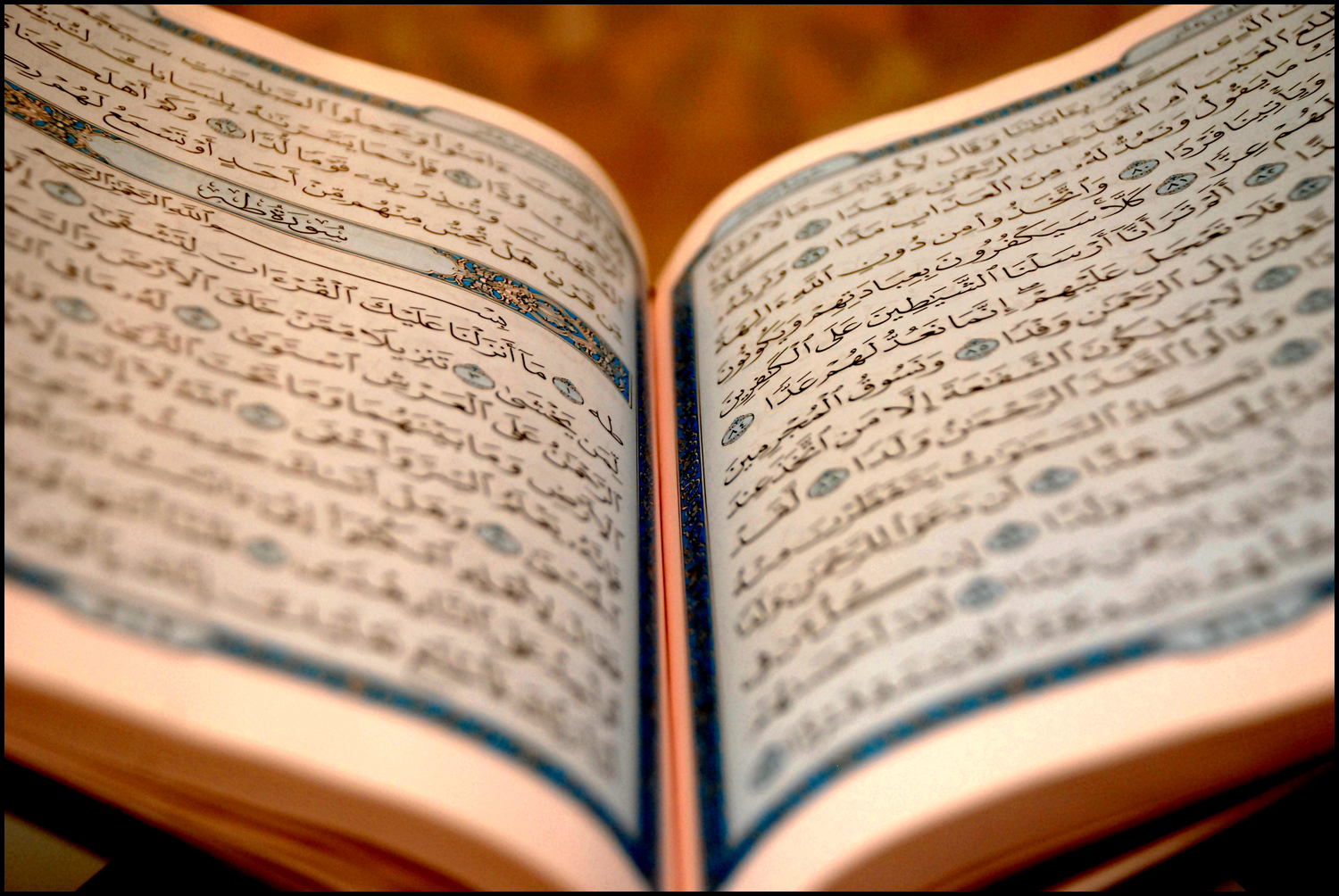The following verse of the Quran makes it clear that Islam endorses a universal belief in God, His Judgement and do good deeds whether such people be Jews, Sabians, Christians or others.
Surely those who have believed in Muhammad as a Messenger of God, and the Jews, and the Sabians, and the Christians—whoso believes in Allah and the Last Day and does good deeds, on them shall come no fear, nor shall they grieve. (5:70)
The first chapter of the Quran known as Surah Fatiha begins with the words All Praises be to the Lord of All the Worlds. Muslims recite these words several times during the five daily prayers. It does not read as the “Lord of the Muslims” or “Lord of the Believers but instead refers to the Lord of all that exists, including all peoples, races and nations on earth. This verse also endorses the principle of universality in Islam.
The religion of Islam by virtue of its Articles of Faith requires Muslims to believe in all the Books and Prophets of Allah. The Quran states that warners (or prophets) have visited all peoples (13:8). Therefore Muslims are required to believe in the truth of the prophets and Books of God that originated other religions.
Excerpt from page 406 “Introduction to the study of the Holy Quran”, by Mirza Bashiruddin Mehmud (1889-1965)— the second Caliph or successor of Mirza Ghulam Ahmad (the Messiah and Mahdi foretold by Holy Prophet Muhammad – on whom be peace).
The followers of some religions believe that God stands in a peculiar relationship towards them from which all other human beings are excluded. They believe that though God is the Creator of the whole universe He is in a special sense the God of a particular people, for instance, the Israelites or the Hindus or the Zoroastrians. The Quran rejects this doctrine and teaches that not only is God unique in His being but that He is the source of the whole universe. The word Ahad occurring in the first verse of Sura Ikhlas means unique and also unity, that is to say, the source which is itself outside numbers but from which all numbers proceed. This verse indicates that God is equally the guide of the whole of mankind and entertains no special attachment to any particular people. Those who strive to attain nearness to Him He guides along the paths that lead to Him. Arabs, Jews, Persians, Indians, Chinese, Greeks and Africans are all equal in His sight, for He is the source of the creation of all of them.
(p. 406, Introduction to the Study of the Holy Qur’an)
Further, below are excerpts from the farewell address of Holy Prophet Muhammad (on whom be peace) that expound on a universal brotherhood and equality among all peoples, Muslim and non-Muslim.
O men, what I say to you, you must hear and remember. All Muslims are as brethren to one another. All of you are equal. All men, whatever nation or tribe they may belong to, and whatever station in life they may hold, are equal.
While he was saying this the Prophet raised his hands and joined the fingers of the one hand with the fingers of the other and then said:
Even as the fingers of the two hands are equal, so are human beings equal to one another. No one has any right, any superiority to claim over another. You are as brothers.
Proceeding, the Prophet said:
Do you know what month this is? What territory we are in? What day of the year it is today?
The Muslims said in reply, they knew it was the sacred month, the sacred land and the day of the Hajj.
Then the Prophet said:
Even as this month is sacred, this land inviolate, and this day holy, so has God made the Iives, property and honor of every man sacred. To take any man's life or his property, or attack his honor, is as unjust and wrong as to violate the sacredness of this day, this month, and this territory. What I command you today is not meant only for today. It is meant for all time. You are expected to remember it and to act upon it until you leave this world and go to the next to meet your Maker.

